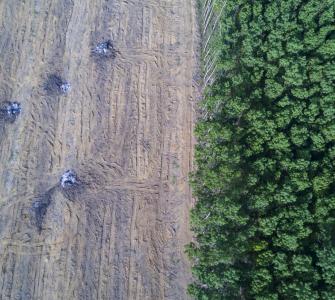Illegal deforestation in the Brazilian Amazon intensified over the last decade, driven by logging, gold mining, land grabbing, and especially cattle ranching. This process has threatened biodiversity, disrupted regional water cycles, and generated severe social and economic impacts for Indigenous Peoples, local communities, and the broader climate system. If recent trends persist, the Amazon faces the risk of large-scale and irreversible losses of ecosystem services with profound economic consequences.
In response to this challenge, Conservation Strategy Fund, in partnership with Amazon Conservation (ACA), conducted a comprehensive economic analysis of the costs of illegal deforestation in the Brazilian Amazon. The project integrated data from multiple sources and advanced valuation methodologies to estimate the real economic damages associated with forest loss, focusing on the social costs of degraded ecosystem services such as climate regulation, soil protection, and hydrological stability.
The analysis found that the economic impact of illegal deforestation in 2023 alone ranged from approximately USD 2.7 billion to USD 25.6 billion under scenarios based on natural regeneration, and from USD 7.8 billion to over USD 100 billion when considering more complex restoration pathways. These figures represent net losses borne by society rather than forgone opportunities, highlighting how private actors capture short-term gains while public goods are degraded. The estimates are likely conservative, as they do not yet capture indirect impacts such as land conflicts or public health risks.
By translating forest loss into quantified, jurisdiction-specific economic damages, the project demonstrated how valuation tools can strengthen accountability and environmental governance. The findings showed that existing enforcement mechanisms remain insufficiently dissuasive, as penalties are often uncertain or delayed, while private returns from illegal clearing are immediate. Attaching credible economic values to deforestation can help support more effective fines, civil liability claims, and restoration obligations that better reflect the true socio-environmental damage.
At the same time, the project highlighted that long-term forest conservation cannot rely solely on enforcement. It underscored the need for complementary financial mechanisms that reward standing forests and create viable economic alternatives to extensive cattle ranching and speculative land clearing. Together, these insights contributed to policy dialogue and stakeholder engagement on how Brazil can better align economic development with forest conservation and long-term value creation.
This project was conducted in partnership with Amazon Conservation (ACA) and supported by funding from the World Bank’s Amazon Sustainable Landscapes Program (ASL).
_
Image: Shutterstock.com

